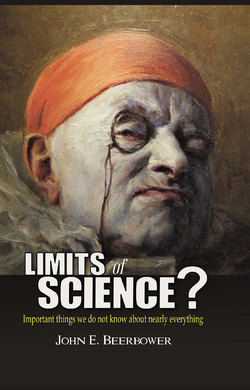Читать книгу Limits of Science? - John E. Beerbower - Страница 5
На сайте Литреса книга снята с продажи.
The concept of causality
ОглавлениеIt appears that man’s concept of comprehensibility depends fundamentally upon a belief in the existence and pervasiveness of causality or causal relationships.1 There are some interesting questions about what we mean by “causality.” At a minimum, as we humans understand it, if one event is a cause of another, then the causal event must have preceded the caused event in time. A subsequent event cannot be a cause. Someday, of course, we may discover that temporal relationships are more ambiguous or fluid; but, for now, chronology plays a central role in our understanding of reality. Next, we would expect that the caused event, under the existing circumstances, would not have occurred “but for” the causing event, that is, if the causing event had not occurred, then the caused event would not have occurred either. (This concept of causation is related to the “falsifiability theories of causation.”) In addition, one might say that A causes B if, all else equal, the occurrence of A will (or probably will/or in a certain percentage of the time will) be followed by the occurrence of B. The “existing circumstances”, or “all else equal”, qualification is important.
This last qualification is sometimes referred to as the “ceteris paribus” condition. It has a rather particular meaning. The “nothing else” that cannot change does not really mean nothing else, which could never be satisfied, but only nothing else relevant to the causal relationship under examination. But, even so, that qualification can still be surprisingly limiting. In certain relationships, the other relevant factors may be quite well-defined, few in number and largely controllable. For example, a hot surface burns a finger, assuming that the finger is more or less at room temperature just before the contact and that the contact is complete enough and long enough. But, in other cases, the other relevant factors may be numerous and not well-understood or, even if understood, not readily controlled for or measured. We shall see later some of the issues that such circumstances present.
But, let’s step back for a moment. From where do we derive the sense or awareness of causality? Perhaps, the belief in causality is an empirical derivation, that is, we observe correlations and conclude, from the empirical experience, that there is causation. However, Hadley Arkes, a professor of political science, argues that “[t]he notion of causation must be in us, so to speak, as a precondition of experience; it is one of those understandings, built into our natures, which makes it possible for us to ‘have experiences.’” First Things: An Inquiry into the First Principles of Morals and Justice (1986), p.67.
